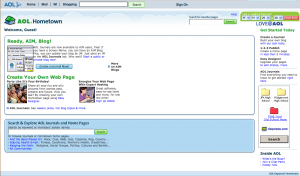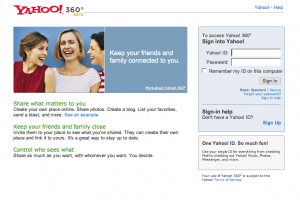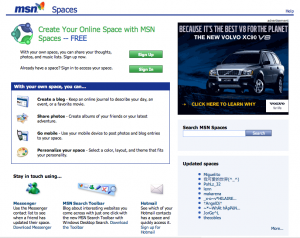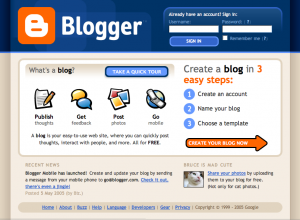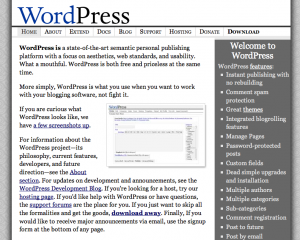Have you had discussions about web logs (blogs) at work? Probably not. Could your VP of Marketing/Communications tell you what a blog is? Maybe. Does your company president, another executive, or even an “insider” in your company have a blog? I certainly hope so.
Voice
The power of a blog is two-fold. First, it gives personality and warmth to your organization. Second, it opens a dialog channel between decision makers in your organization and the end-user, constituent or customer.
Your partners and competitors have already started, just look at the blogs for Maytag, Microsoft, Hill & Knowlton, the Dallas Mavericks, and GM. You might think your industry is unique and that blogs don’t really fit into a realistic marketing strategy. Think again, someone is blogging in it. Here’s a list of known Fortune 500 companies that blog. Would you like their views on your organization and industry to be heard, or yours?
How would you like to grapple with difficult issues in real-time? Would you like to hear opinions of your newest product or service? Want to create buzz around an initiative? Would you like to be known as a thought leader within your industry? Are you interested in a direct, syndicated pipeline to the media and the public?
If you answered “Yes” to any of these questions, then you should start thinking hard about getting a blog off of the ground. It’s time to decide which blogging tool to use, rules for its use and who will be responsible for it. It’s time to take control of your online voice, but be prepared; your writer(s) need to be open, honest, timely and interesting.
As you move towards your first blog, make sure you formulate a strategy: will it be an executive or “insider” blog, or will you empower all of your employees to blog by providing a blog engine for them (like IBM and HP)?
Want some more perspective? Here’s an article from the USA Today about CEO’s not wanting to get involved in blogging, but that many SVP’s do as well as promoting it among the rank-and-file employees.


